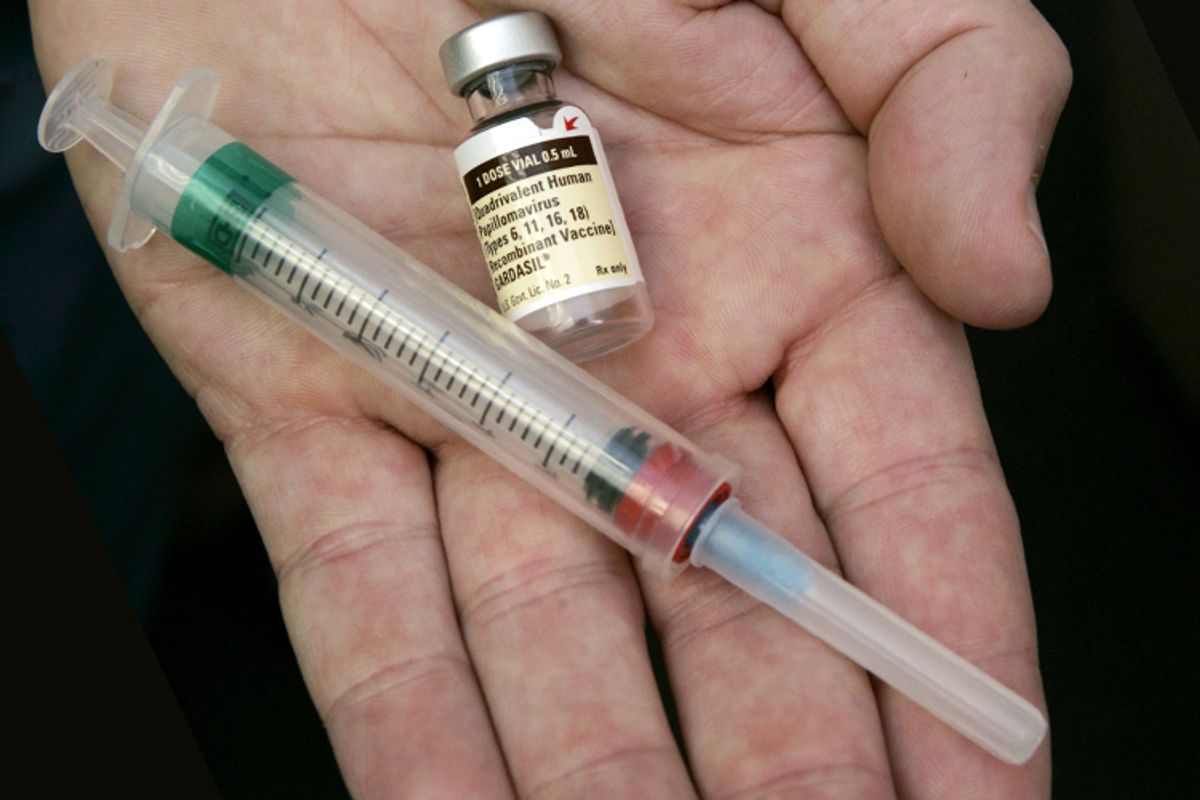A new study presented at a conference for the American Association for Cancer Research found that states with the lowest rates of human papillomavirus (HPV) vaccination have the highest rates of cervical cancer and deaths from the disease. This is not surprising.
While HPV has been linked to several kinds of cancer, it is most often associated with cervical and anal cancers with 91 percent of all cases caused by the virus.
The states with the highest vaccination rates were generally located in the Northeast, including Massachusetts, Rhode Island and Vermont. Time's Alexandra Sifferlin reports that only 6 of 100,000 women contract cervical cancer in Massachusetts, while 69 percent of teenage girls receive a vaccination. The opposite is true for places like Arkansas, where 10 in 100,000 women contract cervical cancer and only 41 percent are vaccinated. In Mississippi and Florida, the rates are similarly low.
Low rates of HPV vaccination in Southern states have troubled medical professionals for some time. "If a lower rate of HPV vaccine uptake in the South persists, it could contribute to the national burden of cervical cancer in the long run," said Dr. Abbey Berenson, a scientist at the University of Texas in Galveston in a press release last year.
Think Progress' Tara Culp-Ressler reports on the difficulty of changing public opinion:
Public opinion has historically been a big barrier to increasing HPV vaccination rates in the United States, which lag far behind the rates in other developed countries. Since HPV is a sexually transmitted disease, some parents are uncomfortable with the idea of giving their young daughters a vaccine for it — they worry the shot will encourage kids to have risky sex, even though there’s absolutely no link between the vaccine and promiscuous sexual behavior. Others still worry that the HPV shot isn’t safe, even though the CDC recommends it for both boys and girls.
Plus, many parents don’t understand why the vaccine matters in the first place. About70 percent of U.S. adults don’t realize the HPV shot can protect against cancer, and about a quarter of parents surveyed by the CDC in 2013 said they don’t believe the vaccine is necessary for their kids.
"These states could really use some interventions to increase the rates of HPV vaccination now," said the study's lead author Jennifer Moss, a doctoral student at the University of North Carolina's Gillings School of Global Public Health in an interview with Sifferlin "Hopefully there will be big dividends in the coming decades in terms of cancer mortality."



Shares